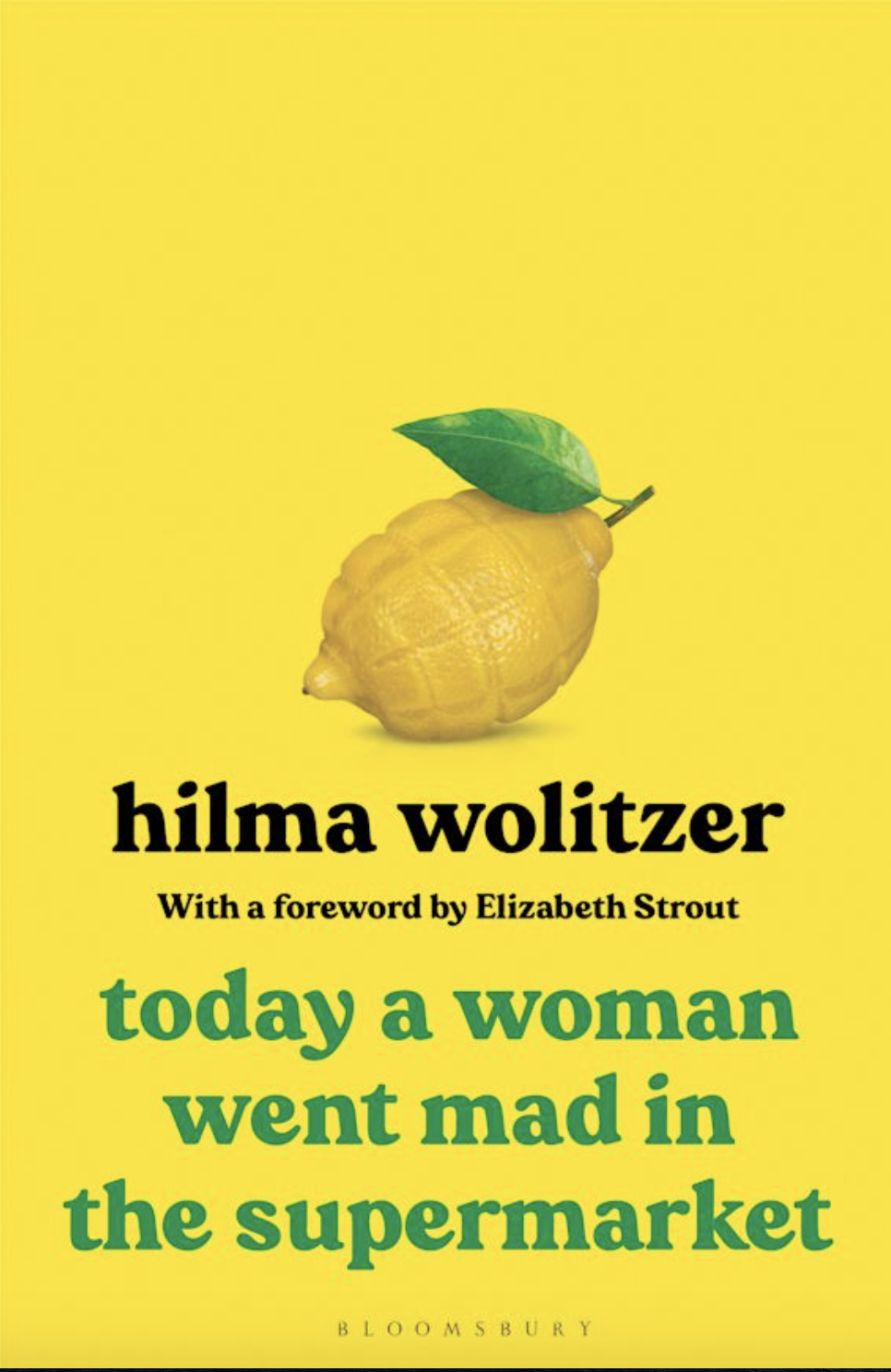Today a Woman Went Mad in the Supermarket by Hilma Wolitzer
Today a Woman Went Mad in the Supermarket (2021) is a collection of short stories by 91-year-old American novelist Hilma Wolitzer. Published this year, the book includes stories from as far back as the 1960s, and largely focuses on the evolution of a marriage. The publishing of this book was prompted by Wolitzer’s husband passing away from COVID-19 after 68 years of marriage: as a coping mechanism, Wolitzer took to pen and paper after a long hiatus, and wrote the final story “unbidden and whole.” It is an ode to her husband as much as it is the melancholic, yet perfect, conclusion to a succession of short stories previously published in various magazines over the years.
The short stories in this collection seem to begin separate from one another, with new sets of characters introduced in each story. But as these accumulate, the same characters keep cropping up, and by the end, an interwoven tale of an ordinary marriage emerges – that between Paulie and Howard. The couple, starting out as passionate lovers, are forever bound to each other when Paulie falls pregnant and neither of them are willing to risk an abortion. The course their lives take, both before and after this decision, is depicted through raw vignettes, told with warmth and candour by an author who has gained a reputation as one of America’s best fiction writers.
The book begins with the eponymous short story, “Today a Woman Went Mad in the Supermarket,” in which a pregnant woman, most likely Paulie, encounters a distressed woman with two children blocking the produce aisle. It is obvious that the woman is at breaking point, and it is this ‘stereotypical’ madness of the mother and housewife that Paulie’s character continues to circle in the stories to come. In time, she will become the distressed woman, and this first story proves to be the perfect frame for the rest of the collection.
As the book progresses, we get a glimpse into the many stages of married life: Paulie and Howard in bed on a Sunday morning, trying to decide what to fill their day with as “the children whisper like lovers in the other bedroom;” the couple who house Howard’s first wife, and even set her up with her second husband; and the way they deal with the nuances of life, such as the death of their parents, jealousy and infidelity, and the passage of time – each in their own way.
The power of these stories lies in Wolitzer’s raw but true portrayal of domestic life – from the viewpoint of Paulie, a woman who lives for her husband and children, and yet, in her inner world, battles much grander things. At one point, she remarks:
“The very worst thing, she was certain, was not human misery, but its nakedness, and the naked witness of others.”
It is in these snippets that the docile, disposable housewife gets a say in how her life takes shape and where we, as the reader, get to see what goes on behind closed curtains. Paulie is certainly not made for the role, and as she navigates family life, her observations reveal the private joys and fears that she must contend with.
Another significant element that lends these stories their shape and meaning is wit. Steeped in ordinary life, it is her humour that stops Paulie from “going mad,” just like the mother she encounters in the supermarket. The aptly titled story, “The Sex Maniac,” begins with the sentence:
“Everybody said that there was a sex maniac loose in the complex and I thought – it’s about time. It had been a long asexual winter.”
Threaded throughout Paulie’s thoughts and observations is a strong sexual theme, which betrays more about her relationship with herself than about her relationship with Howard. Even as the years go by – as she puts on weight after having children and they get older and older – she never stops viewing herself as someone to be desired:
“‘Have you heard anything?’ I asked, and he smiled and said, ‘You don’t need a sex maniac.’
But you were, I thought. Your eyes and your hands used to be wild and your breath came in desperate gulps. You used to mumble your own tender obscenities against my skin and tell me that I drove you crazy. I looked at Howard, his hand poised now on the rim of the laundry basket, and I knew I was being unfair. But whose love is not unfair? When is it ever reasonable?”
The ordinariness of their marriage brings into focus the universal tensions and contradictions in relationships everywhere. The small joys, the stolen victories, the unexpected events that must be dealt with, the endurance of a promise and the devotion that goes beyond age.
Today a Woman Went Mad in the Supermarket is a wonderfully incisive collection and a quietly hopeful time capsule of marriage and motherhood over the last century. Hilma Wolitzer is worth rediscovering.
Fruzsina Gál is an aspiring writer, born in Hungary but living in Australia. She has been a reader all her life, and her first short story, 'The Turul' was published in Griffith University's 2018 anthology, Talent Implied. Her writing is often focussed on identity and the effects of immigration on the self. You can find her online at www.fruzsinagal.com or @thenovelconversation.
